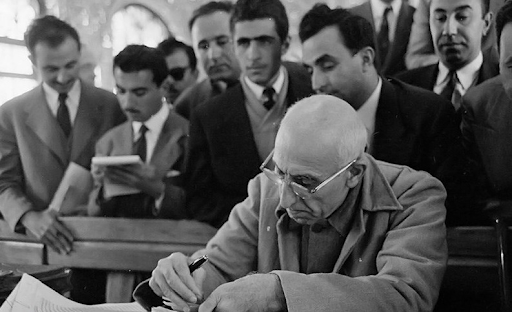A report in the British newspaper, The Guardian, spoke today, Tuesday, about "the need for the United Kingdom to recognize its role in the coup that took place in Iran in 1953, which toppled the democratically elected government of Muhammad Mossadeq, and replaced it with a military government that allowed the Shah to restore his dictatorial powers on a large scale in the country." for two and a half decades, before the Islamic Revolution overthrew him in 1979.
In the context, former British Foreign Secretary David Owen said, "The United Kingdom must finally acknowledge its role in the coup, for the sake of the credibility of Britain and the Iranian reform movement."
The United States officially acknowledged its primary role in the coup 10 years ago, after declassifying a large number of intelligence documents, which made it clear that the overthrow of the elected Prime Minister, Muhammad Mosaddegh, 70 years ago this week, was a joint endeavor between the British and American intelligence services. The CIA and MI6.
So far, the UK government's official position has been to "refuse to comment on this intelligence matter".
According to the report, the original plot, codenamed "Operation Bout" or "Ajax", was formulated by the British Secret Service after Mossadegh became prime minister and the dominant British oil company in Iran was nationalized.
The report states that "the administration of Harry Truman, the US president, did not want to have anything to do with this process, and considered Mossadegh as a bulwark against communism, but Winston Churchill, the UK prime minister at the time, was able to convince his successor Dwight Eisenhower of the importance of carrying it out."
In the spring of 1953, the CIA began joint planning with British intelligence, and the operation was renamed Ajax.
On the 70th anniversary of the start of the coup, on Tuesday, David Owen, who was foreign secretary from 1977 to 1979, told the Guardian newspaper, "There are good reasons today to recognize the UK's role with the US in 1953 in overthrowing democratic developments in Iran."
And he stressed that this must happen "by recognizing that we were wrong in doing so, and we damaged the steps that were developing towards a democratic Iran, and through this we can make reforms now more bearable," he said.
During Lord Owen's tenure at the Foreign Office, the Islamic Revolution in Iran overthrew the Shah's regime, and Owen said, commenting on that period: "I made it clear to the Shah that his style of government should give way to democratic reforms, but I wish I had known about his serious illness, and I could have The pressure was on him much earlier, in 1978, to stay in Switzerland for medical treatment."
He added, "Today, the British government will help the cause of the dissidents in Iran, and make it more likely to succeed without neglecting it, if we admit our previous mistakes in 1953, as well as the mistakes we committed in the period from 1977 to 1979."
Documentary film about the coup suppressed by Britain
The report in the "Guardian" touched on a new film entitled "Coup 53", which traces the history of the coup in Iran, and focuses on a young British spy who played a pivotal role in it, named Norman Darbyshire.
Despite receiving rave reviews and ratings, director Taghi Amirani and veteran Hollywood editor Walter Murch were unable to find a distributor for the film, a fact they attribute to the UK's continued cloak of official secrecy on the subject.
Amirani said they were subjected to “the most bizarre and sinister attempts to suppress both the contents of the film and its chances of distribution, through so many twisted turns,” while Richard Norton Taylor, author of The Secret State, a book on British intelligence and the media, said it was “sad.” It is absurd, even counterproductive, for the British government to continue to hide behind its old motto of "neither confirm nor deny" and to continue refusing to acknowledge its leading role in the overthrow of Mosaddegh.
Despite the insistence of British politicians to present the British role in Iran as a supportive role for democracy, many Western reports and books on the history of politics in the region and intelligence operations confirmed that the main goals that constituted Britain's motive in Iran are economic ambitions for Iran's oil, and political ambitions due to its strategic location in Iran. confront the Soviet Union.
Last January, Iranian intelligence arrested a high-ranking British agent, Ali Reza Akbari (61 years), former assistant to the Minister of Defense, on the grounds of his conviction of spying for Britain, of which he holds nationality, and the Iranian judiciary later announced the execution of the death sentence issued against him.



































No comments:
Write comments